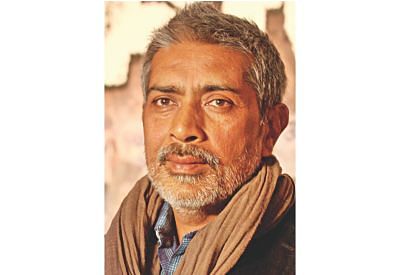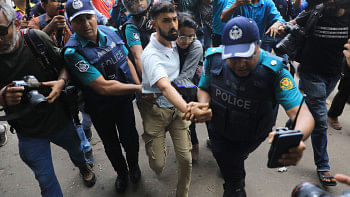Prakash Jha: Crusading director

Politics and film director Prakash Jha have seldom been separated.
During a career spanning 27 years, Jha has made films on feudalism and politics of muscle and money power like his debut work “Damul”, “Gangajal”, “Aapaharan” and “Rajneeti”. And now he has turned his attention to the issue of Maoism, which has hit several parts of India, in his next project “Chakravyuh”.
When Jha made “Damul” in the mid-1970s, his focus was on exploitation of bonded labourers in an out and out feudal set-up in a village in his home state of Bihar. Jha at that time was truly a social-realist artist with no ingredients of Bollywood. Over the years, his political view has evolved along with the changing political scenario in India and so has his strategy as a filmmaker.
In directing “Damul”, 60-year-old Jha did not have an eye on the box office but lately he has become conscious of its importance. It has a lot to do with his view of the changed political scenario in India. In an interview he said that until the 1990s, the political system was run by the upper and middle classes and after that backward and lower caste people began getting a share of the political system and consequently the power structure.
However, as “Gangajal” shows, what matters is not caste but the story of exploitation by the ruling class cutting across castes. The film shows when leaders from backward castes get a taste of the ruling political system and power, they do not hesitate to exploit it to the hilt by using money and muscle power.
“The root cause for social unrest is primarily our feudal mindset which creates systems to benefit a few and exploit the rest. Our democracy begins and ends with an election. The problem with democracy is that unless it has equal participation by everybody in the real sense, it does not work,” Jha told a newspaper in an interview.
According to him, the tribals-turned-Maoists “feel left out from development process as they have no access to a better life. The backlash, pointed out Jha, started in Naxalbari in West Bengal when the tribals could not get the land that was theirs.
According to Jha, Maoism appears to be spreading from impoverished villages to the industry in urban areas and educated people from universities like Jawaharlal Nehru University in Delhi and universities in Mumbai, Nagpur and Osmania are being recruited for the Maoist movement.
“My concern is that this movement is coming to our neighbourhood. And so, if this discontent comes to Dharavi (Asia's largest slum cluster in Mumbai), how will you save Mumbai?” -- questioned Jha.

 For all latest news, follow The Daily Star's Google News channel.
For all latest news, follow The Daily Star's Google News channel. 



Comments